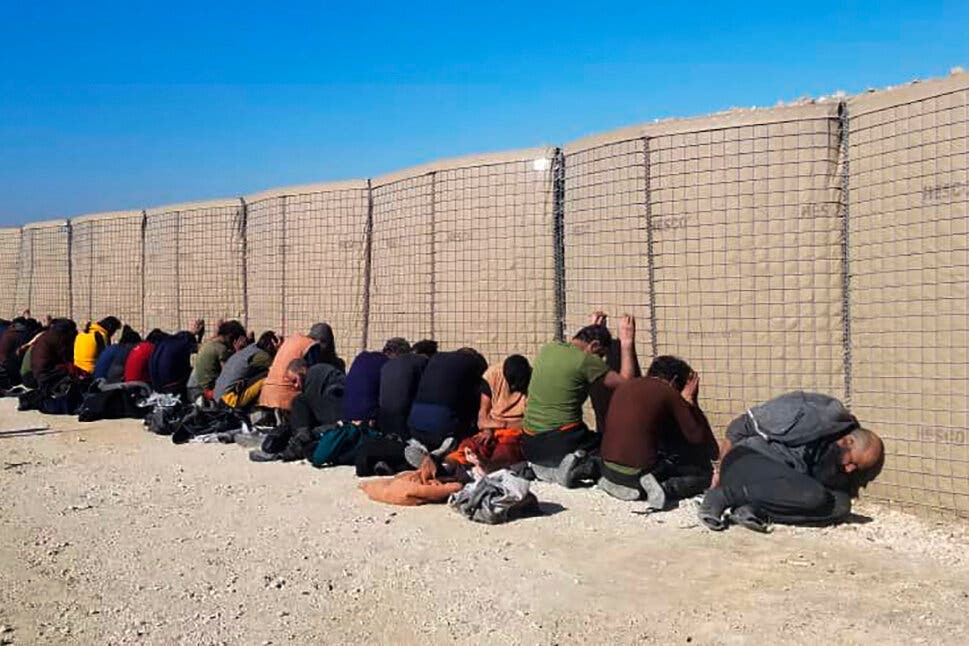Alwaght- Specter of ISIS resurgence is rising with intensification of attacks of the terrorist group in recent weeks especially following jail break of a big number of its prisoners from Hasakah prison in northeastern Syria, where about 5,000 ISIS captives are being kept, and possible re-organization using the sleeper cells and wanted members across Syria and Iraq. This issue is causing more sensitivity especially in areas prone to penetration of takfiri thought and ideology, the areas previously under the group's control, or even areas that in recent months have been concentration spots of its elements.
But as much as the reports of ISIS attacks worry the central Iraqi regions and especially the provinces bordering Syria, the Iraqi politicians, who are these days badly busy bargaining to share the power, remain unheeding of the developments.
Some prominent Iraqi politicians, meanwhile, have dismissed as propagand the warnings of ISIS return, arguing that dangers of ISIS actions for the Iraqi national security are less than what is demonstrated. Muqtada al-Sadr, for example, on Sunday addressed ISIS, saying: "The terrorist enemy spreads rumors of returning. We tell you if you return, we are capable of obliterating you."
Continuing his statement, al-Sadr said that the bigger problem was the a exaggeration of this issue by some internal parties in order to "spread fear and sectarianism among the Iraqi people, and finally to present themselves as defenders of the land and honor in the people's eyes."
In a Twitter post, former parliament speaker Mohammed al-Halbousi, stated that the policy of propagandistic terror to create insecurity by a "group of mercenaries" would not deceive anybody anymore. The 2014 occurrences were an expressive lesson well learned by the Iraqis.
"Daesh will not return and terrorism will disappear in all its forms. There is no place or refuge for them in an independent, secure, capable, and prosperous Iraq," he continued, using Arabic acronym of ISIS.
Defense Minister Juma Anad was another figure to react, stressing that the position of the ISIS terrorist group is not the same as in 2014 and that the terrorist gangs operating on the ground are small and their elements just have light weapons like assault and sniper rifles.
The Iraqi-Syrian borders are tightly controlled and " we follow Hasakah prison developments," he assured.
He warned about publishing misinformation about ISIS on social platforms, arguing that this can negatively impact the security in Iraq.
These remarks come at a time when many Iraqi political analysts and observers, especially among Iraqi resistance groups, believe that with the expiration of the presence of foreign troops under the Iraqi parliament's law for expulsion of foreign forces, one of Washington's main strategies for maintaining its troops in Iraqi soil is helping the return of ISIS and increasing threats to Iraqi national security. Though there is no danger of ISIS seizing large parts of Iraq and Syria like in 2014, Iraqi leaders should take seriously counter-ISIS plans given the American plot to bring back the terrorist group to justify its military stay.
In post-ISIS period in Syria and Iraq in which a large number of ISIS fighters were captured by both countries' security forces, the Western countries not only blocked trials of them in international courts for the fear of disclosure of who really sponsored them but also are now preventing their return to their home countries for their re-exploitation in new operations. The terrorist elements in prison now work like a ticking bomb that can endanger the country anytime and cause tremendous harm. This is certainly on the American agenda. A commander of Free Syrian Army, the military arm of the Syrian opposition, reacted to the news of Hasakah jail break, saying on his Facebook account: "5,000 ISIS militants escaped from Hasakah jail. What happens if do the 10,000 of them in Al-Hawl camp?"
Although no party can claim to be able to fully contain the threat of ISIS, especially since the terrorist organization has resorted to covert activities in the form of local cells in the provinces since the fall of its caliphate, which make them more difficult to identify and suppress, it seems that the massive success of the resistance forces like Iraq's Popular Mobilization Forces (PMF) and their rapid and unconditional presence in the battle against terrorism and reaction to the White House plans to destabilize the region is the main source of confidence making some Iraqi leaders decline to take seriously the resurgence of ISIS.
Meanwhile, underestimating by central government the ISIS re-emergence threats, including attacks on farms, insecurity in routes, extortion, and hostage taking, mostly worries the ordinary people who have a more realistic and supportive view of PMF's operational presence especially in the regions where the terrorists already have presence and activity.



























